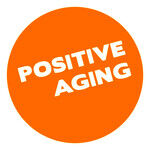Even walking just a bit slower can be a sign of emerging dementia, say University of Pittsburgh researchers. "
The scientists assessed 175 older adults, ages 70 to 79, over the course of 14 years. In the beginning, all were in good mental health with normal brain scans. As part of the testing, participants were asked at multiple times to walk a hallway at what they deemed was a normal walking speed.
At the study's conclusion, the participants were retested for mental acuity and received another brain scan. As with previous studies, slowing in participants' gait was associated with cognitive impairment and, specifically, with shrinkage of the right hippocampus, a region of the brain involved in memory and spatial orientation that is often affected first by emerging dementia.
"A fraction of a second is subtle, but over 14 years, or even less, you would notice," said Andrea Rosso, lead author of a study recently published in Neurology. "People should not just write off these changes in walking speed. It may not just be that grandma's getting slow — it could be an early indicator of something more serious."
Rosso said such clues should prompt further, deeper testing.
Flu Cue
If you want people to get vaccinated against a new virus, a good first thing to do is give the virus a very scary name. Researchers asked 16,500 people in 11 countries to read an article about a pandemic flu spreading in their region, then fill out a survey inquiring if they were worried about contracting the flu and their thoughts on getting vaccinated.
The article was the same with one distinction. The fictitious flu described had different names: H11N3, horse flue and Yarraman flu, named after an Aboriginal word for horse. Study participants were much less worried about "horse flu" than H11N3 or Yarraman. The findings, report STAT, underscore the importance of effective communication when it comes to public health.
Body of Knowledge
A full bladder is roughly the size of a softball.
Get Me That, Stat!
A Syrian doctor named Khaled Almilaji is internationally renowned for coordinating a campaign to vaccinate 1.4 million Syrian children. He had previously studied at Brown University and had planned to return, but cannot due to the travel ban. Instead, he plans to settle in Canada.
Number Cruncher
A single serving of Ore-Ida Tater Tots (3 ounces) contains 150 calories, 63 from fat. It has 7 grams of total fat or 11 percent of the recommended total fat intake for a 2,000-calorie daily diet. It also contains 200 milligrams of sodium (8 percent); 20 grams of total carbohydrates (7 percent); 2g of dietary fiber (8 percent); and 2g of protein.
Doc Talk
Doc in a Box: a small healthcare center with limited staff
Phobia of the Week
Photoaugliaphobia: fear of glaring lights. This condition is unknown in Hollywood.
Never Say Diet
The Major League Eating record for cupcakes is 72 in six minutes, held by Patrick Bertoletti. The feat made him something of a stud muffin in some circles.
Best Medicine
Q: What does HMO stand for?
A: This is actually a variation of the phrase, "Hey Moe!" Its origin dates back to a concept pioneered by Moe Howard of the Three Stooges, who discovered that a patient could be made to forget the pain in his foot (or pocketbook) if he was poked hard enough in the eye.
Observation
"Is there no hope?" the sick man asked.
The silent doctor shook his head, and took his leave with signs of sorrow,
Despairing of his fee tomorrow."
—English poet John Gay (1685-1732)
Medical History
This week in 1994, Rosanna Della Corte, a 62-year-old Italian woman, gave birth to a healthy son, Riccardo, after artificial insemination using her 63-year-old husband's sperm. Della Corte had lost her only son at 17 in a car accident, and adoption attempts had proven fruitless. After news of her story, Pope John Paul II issued a papal encyclical, Evangelium Vitae, condemning in vitro fertilization and other high-tech fertility procedures.
Self Exam
Q: How many years of an average human lifespan are spent eating?
a) 1
b) 3
c) 5
d) 10
A: 5 years
Medical Myths
Can holding in a sneeze by, say, pinching your nose or keeping your mouth closed cause hearing damage? The odds are low, but it's possible. In the moments before a sneeze, the lungs fill with tremendous air pressure so that they can spew out nasal discharge at up to 100 miles per hour. Consciously preventing this discharge can force the pressurized air back through the Eustachian tube and into the middle ear cavity, where it may damage sensitive membranes. The result can be sensorineural or conductive hearing loss, perhaps even vertigo. Other injuries may include harm to the diaphragm, ruptured blood vessels in the eyes and in the brain.
So let it happen. The sooner a sneeze happens, the sooner that dumb look on your face will go away.
Epitaphs
"Looked up the elevator shaft to see if the car was on the way. It was."
—Harry Edsel Smith, Albany, NY (1903-1942)
To find out more about Scott LaFee and read features by other Creators Syndicate writers and cartoonists, visit the Creators Syndicate website at www.creators.com.






View Comments